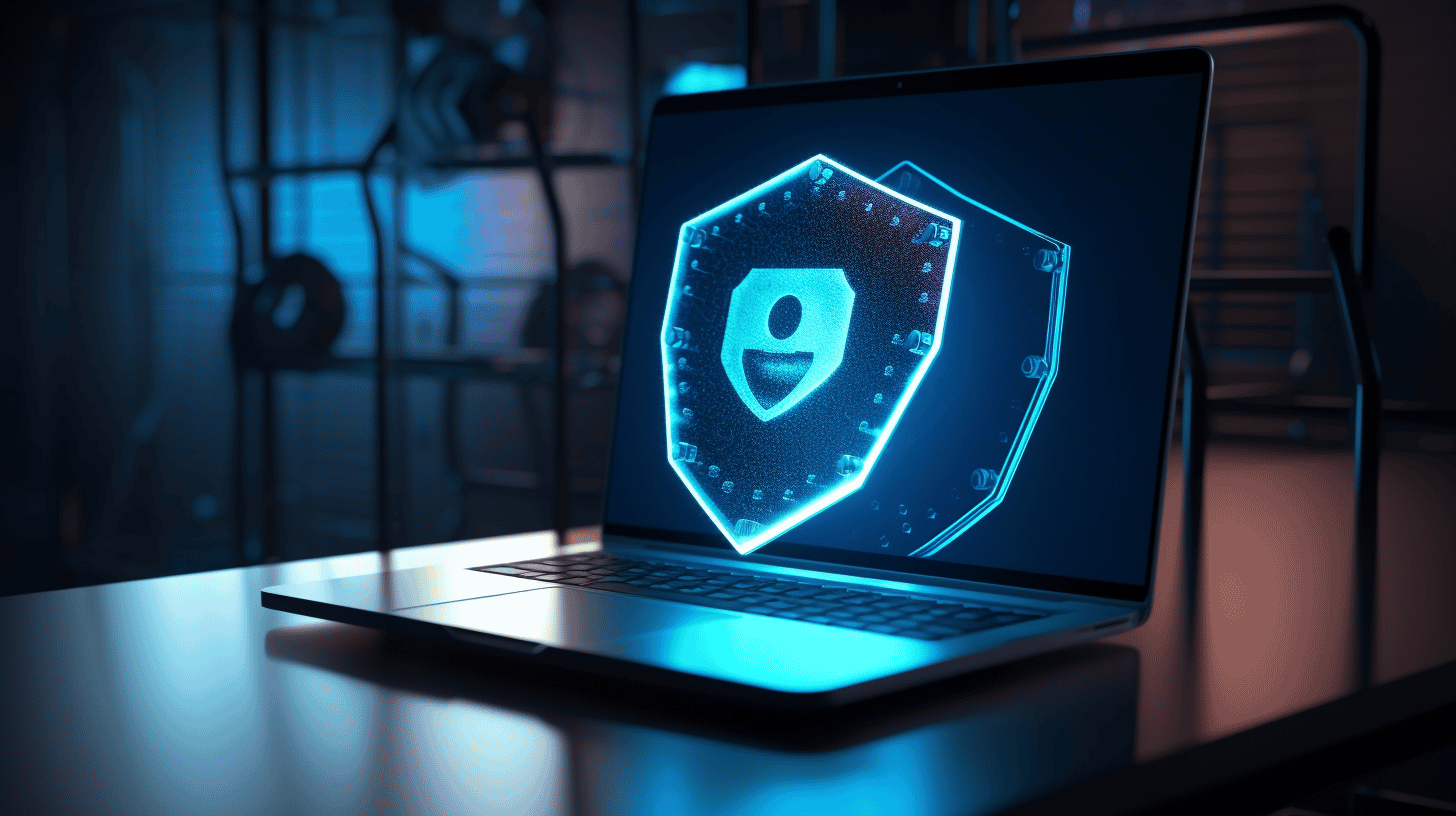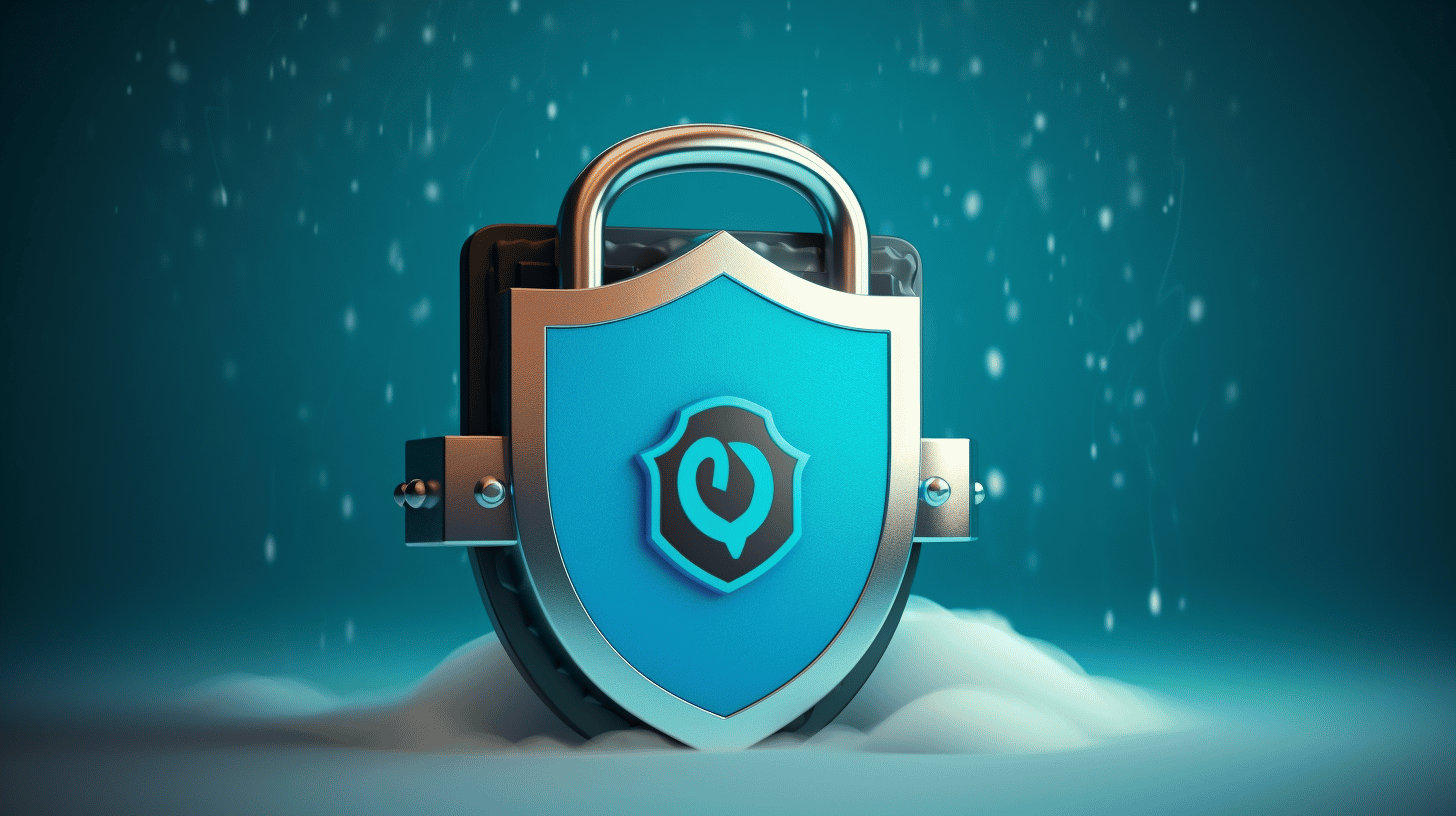In today’s digital landscape, security is of paramount importance. Whether you’re a seasoned website owner or just starting out with WordPress, understanding online security is essential to protect your assets. 🛡️
WordPress, the world’s most popular content management system, powers millions of websites. Unfortunately, its popularity also makes it a common target for hackers and malicious attacks. As a website owner, it is important to be proactive in securing your WordPress site to mitigate these risks. This article will guide you through the key aspects of WordPress online security and provide valuable tips to keep your WordPress site safe from vulnerabilities.
So, let’s dive in and explore the world of WordPress security, empowering you to protect your valuable online assets.
Understanding WordPress Online Security
Introduction
In the digital age, website security is of utmost importance, especially for WordPress users. With over 455 million websites currently running on WordPress, it has become a prime target for cybercriminals. Understanding WordPress online security is crucial for website owners and administrators alike to protect their valuable data and maintain the trust of their visitors.
Importance of WordPress Security
Ensuring the security of your WordPress website should be a top priority. Here’s why:
- Protection against cyber threats: Cybercriminals are constantly evolving their tactics, making it essential to stay one step ahead. Implementing robust security measures helps protect your website from malicious attacks, such as hacking, malware, and phishing attempts.
- Safety of user data: Websites often collect sensitive information from users, such as personal details, payment information, and login credentials. A breach in security can lead to a compromise of this data, resulting in identity theft, financial loss, and damaging lawsuits.
- Preserving reputation and trust: A secure website builds trust among users. When visitors feel safe browsing and interacting with your site, they are more likely to engage, make purchases, and recommend your services to others. On the other hand, a security breach can tarnish your reputation and lead to a loss of credibility.
Primary Threats to WordPress Security
Understanding the potential threats to WordPress security is the first step in protecting your website from harm. Here are some common vulnerabilities that you should be aware of:
- Weak passwords: Using weak passwords or reusing them across different platforms increases the risk of unauthorized access to your WordPress admin panel. It is crucial to choose strong, unique passwords and enable two-factor authentication for an extra layer of security.
- Outdated software: Running outdated versions of WordPress core files, themes, and plugins can leave your website vulnerable to security breaches. Always keep your WordPress installation up to date to benefit from the latest security patches and bug fixes.
- Malicious code injection: Attackers may exploit vulnerabilities in poorly coded themes or plugins, injecting malicious code into your website. Regularly update and review your plugins and themes, and only use reputable sources for downloads.
The Consequences of Inadequate WordPress Security
The repercussions of inadequate WordPress security can be severe and long-lasting. Here’s what you could face if your website falls victim to a security breach:
- Data loss: Cyberattacks can result in the loss or corruption of critical data, including customer information, product inventory, and financial records. Recovering from data loss can be time-consuming, costly, and potentially irreversible.
- Website downtime: A compromised website can be taken offline by attackers, leading to significant revenue losses and damage to your online presence. It may take hours, days, or even weeks to fully recover and restore your website’s functionality.
- Damaged reputation: A security breach can erode the trust of your users and damage your brand reputation. News of a data breach spreads quickly, leading to negative publicity and potential customer backlash.
In conclusion, understanding WordPress online security is vital for protecting your website, user data, and reputation. By implementing robust security measures, staying updated with the latest software versions, and being vigilant against potential threats, you can ensure a safer online experience for yourself and your users.
To learn more about securing your WordPress website against cyber threats, check out this comprehensive guide on Securing Against Cyber Threats.
Basic WordPress Security Principles
In today’s digital age, website security is of utmost importance. WordPress, being one of the most popular content management systems (CMS), is also one of the most targeted platforms for malicious attacks. It is essential for website owners and administrators to prioritize security measures in order to protect their valuable data, sensitive information, and user privacy.
Secure Hosting
One of the fundamental pillars of WordPress security is choosing a secure hosting environment. A reliable and reputable hosting provider will have robust security measures in place, including:
- Regular server software updates to patch any vulnerabilities
- Firewall protection to prevent unauthorized access
- Intrusion detection systems to monitor and block suspicious activity
- Daily backups to ensure data recovery in case of a breach
- Secure file transfer protocol (SFTP) for secure file uploads and downloads
Opting for a managed WordPress hosting solution can provide an additional layer of security as these providers often specialize in WordPress security and offer advanced security features and ongoing monitoring.
Updates and Maintenance
Regular updates and maintenance are crucial for keeping your WordPress site secure. The WordPress core software, themes, and plugins should be kept up to date to ensure that any security vulnerabilities are patched. Updates often include security fixes that address potential vulnerabilities identified by the WordPress community.
Here are a few best practices to consider:
- Enable automatic updates for WordPress core, themes, and plugins whenever possible.
- Regularly check for updates manually and perform updates promptly.
- Remove inactive themes and plugins to minimize potential security risks.
Password Security
Strong passwords are an essential component of WordPress security. Weak passwords are easily compromised, making your site vulnerable to unauthorized access. To create secure passwords, consider the following tips:
- Use a combination of uppercase and lowercase letters, numbers, and special characters.
- Avoid using easily guessable information such as names, birthdates, or dictionary words.
- Regularly change passwords and do not reuse the same password across different accounts.
Implementing two-factor authentication (2FA) can also add an extra layer of security. This requires users to provide a second form of verification, such as a unique code sent to their mobile device, along with their password.
User Access Levels
Controlling user access levels is crucial for maintaining the security of your WordPress site. By assigning appropriate user roles and permissions, you can ensure that each user has the necessary access they require and nothing more. This helps to prevent unauthorized access to sensitive areas of your website.
WordPress provides the following default user roles:
- Administrator – has complete control over the site
- Editor – can publish and manage content, but cannot modify themes or plugins
- Author – can create and publish their own posts
- Contributor – can write and submit posts for review
- Subscriber – can only manage their user profile
By assigning user roles based on the responsibilities of each user, you can limit potential security risks and reduce the likelihood of accidental modifications or malicious actions.
Remember, WordPress security is an ongoing process that requires frequent attention and maintenance. By implementing these basic security principles, you can significantly enhance the protection of your WordPress site against potential threats.
To learn more about the basics of IT infrastructure for WordPress, visit our Basics of IT Infrastructure page.
Advanced WordPress Security Measures
When it comes to protecting your WordPress website from potential threats and attacks, it’s essential to go beyond the basics of security. Implementing advanced security measures can provide an additional layer of defense, keeping your site and valuable data safe from malicious actors. Let’s explore some of the most effective advanced security measures you can take to fortify your WordPress site.
Two-Factor Authentication 🔒
One of the most powerful deterrents against unauthorized access is the implementation of two-factor authentication (2FA). This additional step provides an extra level of security by requiring users to verify their identity through two separate factors: something they know (such as a password) and something they have (such as a unique code sent to their mobile device). By enabling 2FA, you can ensure that only authorized users can access your WordPress site, even if their login credentials are compromised. This measure significantly reduces the risk of unauthorized access and strengthens your overall security posture.
Website Security Plugins 🛡️
In the ever-evolving landscape of cybersecurity, having a reliable security plugin is crucial. These plugins offer a wide range of features designed to monitor and prevent security breaches on your WordPress site. They provide real-time threat detection, malware scanning, firewall protection, and much more. By regularly updating and configuring these plugins, you can stay one step ahead of potential vulnerabilities and keep your site secure.
- (Additional Info) Employing two-factor authentication can significantly increase your WordPress Security.
- (Additional Info) Security plugins are also a valuable tool in monitoring and preventing breaches.
If you’re considering adding a security plugin to your WordPress site, WordPress Security Plugins can help you choose the right one for your specific needs.
Secure Socket Layer (SSL) 🔐
To safeguard sensitive data transmitted between your users’ browsers and your WordPress server, it’s crucial to implement Secure Socket Layer (SSL) encryption. An SSL certificate ensures that the data exchanged remains confidential by encrypting it as it travels through the internet. This encryption protects your users’ personal information, such as login credentials or credit card details, from being intercepted by hackers. By installing an SSL certificate, you create a secure connection between the user and your server, enhancing trust and preventing data breaches.
- (Additional Info) An SSL certificate encrypts data between the user and server, securing the connection.
Backup and Restore Protocols 🔄
Despite taking all necessary precautions, security breaches can still occur. In such scenarios, having a reliable backup and restore protocol in place is vital. Regularly backing up your WordPress site ensures that you have a recent copy of your data, themes, plugins, and configurations. This allows you to swiftly restore your site to a previous state in the event of a security breach or any unexpected issue. By implementing a backup and restore protocol, you can mitigate the impact of potential attacks and minimize downtime.
- (Additional Info) Having a backup and restore protocol helps in swiftly restoring a site if a breach does occur.
Remember, the security of your WordPress site is an ongoing effort. By implementing these advanced security measures, you can significantly reduce the risk of security breaches and keep your website and data protected. Stay proactive and stay secure!
Maintaining Your WordPress Site Security
With the growing prevalence of cyber threats and attacks, it’s more important than ever to prioritize the security of your WordPress site. From protecting sensitive user information to ensuring the integrity of your website’s data, maintaining a secure online presence is essential. In this article, we will explore three key strategies to help you maintain the security of your WordPress site: regular security audits, ongoing staff training, and staying up-to-date with security trends and threats.
Regular Security Audits
Regular security audits are a crucial component of maintaining the security of your WordPress site. These audits help you identify and address vulnerabilities before they can be exploited. By regularly reviewing your site’s security measures, you can stay one step ahead of potential threats and ensure the safety of your website and its users.
During a security audit, you should consider the following:
- Identifying Vulnerabilities: Scan your site for vulnerabilities such as outdated plugins or themes, weak passwords, inadequate user permissions, or any other potential security loopholes.
- Implementing Security Best Practices: Take necessary measures to address identified vulnerabilities, such as updating plugins and themes, strengthening user passwords, and following recommended security best practices.
- Monitoring Website Traffic: Keep an eye on your website’s traffic logs and look for any suspicious activity, such as multiple failed login attempts or sudden spikes in traffic from unfamiliar sources.
Remember, security audits should be conducted regularly to ensure ongoing protection for your WordPress site. By proactively addressing vulnerabilities, you can significantly reduce the risk of a security breach.
Ongoing Staff Training
An often overlooked aspect of WordPress site security is ongoing staff training. Your employees play a critical role in maintaining the security of your website. It’s important to educate your staff about best security practices and ensure they have a solid understanding of potential threats and how to mitigate them.
Here are a few training topics to consider:
- Password Management: Teach your staff about the importance of using strong passwords and implementing two-factor authentication (2FA) to add an extra layer of security.
- Recognizing Phishing Attempts: Train your employees to identify common phishing techniques, such as suspicious emails or websites that may attempt to steal sensitive information.
- Website Maintenance: Educate your staff on the importance of keeping plugins, themes, and core WordPress files up-to-date. Outdated software can create vulnerabilities that hackers can exploit.
By investing in ongoing staff training, you empower your team to be active participants in maintaining the security of your WordPress site.
Staying Up-to-Date with Security Trends and Threats
As security threats continually evolve, keeping up to date with security trends is crucial. By staying informed about the latest threats and vulnerabilities, you can take proactive measures to protect your WordPress site.
Here’s how you can stay ahead of the curve:
- Follow Trusted Sources: Stay connected with reliable sources such as security blogs, forums, and industry publications to stay informed about the latest security trends and threats.
- Update Security Measures: Regularly review and update your security measures based on the evolving threat landscape. This may include implementing new security plugins or utilizing firewall protection.
- Partner with a Managed WordPress Provider: Consider partnering with a Managed WordPress provider that specializes in website security. These providers often offer advanced security features and proactively monitor and mitigate potential threats.
By staying up-to-date with security trends, you can ensure that your WordPress site remains protected against the latest threats and vulnerabilities.
In conclusion, maintaining the security of your WordPress site requires a proactive approach. Regular security audits, ongoing staff training, and staying up-to-date with security trends and threats are all essential components of a robust security strategy. By implementing these strategies, you can significantly reduce the risk of a security breach and safeguard your website against potential cyber threats.
Stay ahead of hackers and protect your WordPress site. Learn how to bolster your website’s security with a reliable WordPress firewall here.
Conclusion
In conclusion, securing your WordPress website is essential to safeguard your assets and protect against potential threats. By implementing a combination of basic and advanced security measures, you can significantly reduce the risk of unauthorized access and data breaches. Regular security audits, ongoing staff training, and staying informed about the latest security trends and threats are crucial for maintaining the security of your WordPress site.
Remember, at Managed-WP™, we specialize in providing premium managed WordPress cloud hosting and comprehensive security solutions. Our platform simplifies infrastructure, offers freedom in digital experiences, and comes with expert 24/7/365 WordPress support. With Managed-WP™, you can rest assured that your website is in safe hands.
Contact us today to learn more about how we can help secure your WordPress site and provide you with peace of mind. Your website’s security should never be compromised, and with Managed-WP™, you can trust that your assets are protected. Don’t wait until it’s too late – prioritize your WordPress security today!
🔒💪
Frequently Asked Questions
- What are the common security vulnerabilities in WordPress?
Common security vulnerabilities in WordPress include outdated software, weak passwords, insecure hosting, unsecure themes and plugins, and lack of regular backups and security scans.
- How can I secure my WordPress website?
To secure your WordPress website, you can follow these best practices: keep WordPress and plugins/themes up to date, use strong passwords, choose a reliable hosting provider, install a security plugin, enable two-factor authentication, limit login attempts, and regularly backup your website.
- Which security plugin is recommended for WordPress?
There are several reputable security plugins available for WordPress. Some popular choices include Wordfence Security, Sucuri Security, iThemes Security, and All In One WP Security & Firewall. It is important to choose a plugin that suits your specific needs and requirements.
- Why are regular backups important for WordPress security?
Regular backups are crucial for WordPress security because they allow you to restore your website in case of a security breach, accidental data loss, or website corruption. Backups provide an extra layer of protection and peace of mind.
- Should I use SSL/TLS certificate for my WordPress website?
Yes, using an SSL/TLS certificate is highly recommended for your WordPress website. It secures the communication between your website and its visitors by encrypting data transfers. It also boosts your website’s credibility and improves search engine rankings.



















